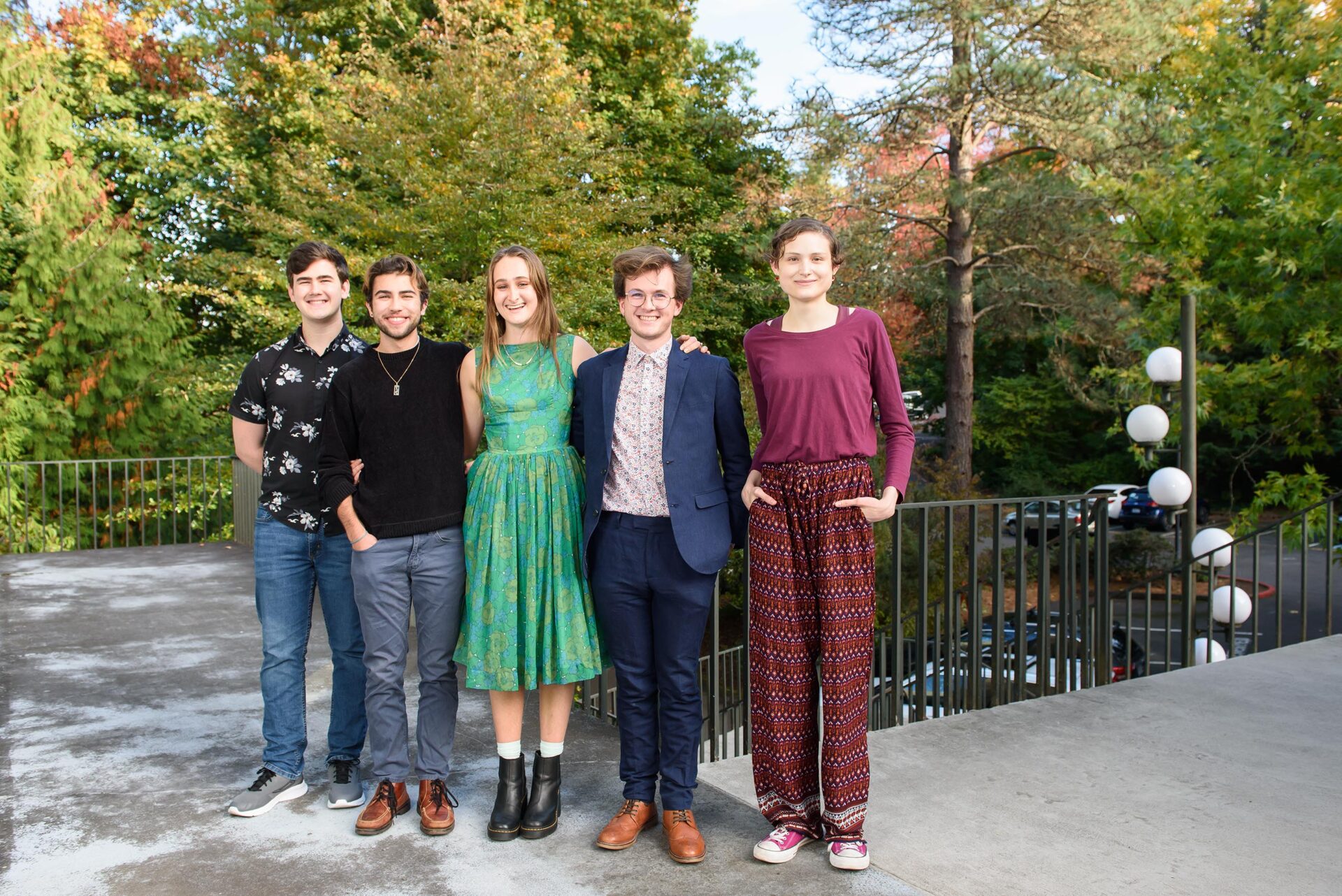
Lewis & Clark’s Environmental Studies program held their 24th “Environments Across Borders” (ENVX) symposium from Oct. 19 to Oct. 21. The three-day event’s theme, “A Post-Truth Environment,” endeavored to explore what communication should look like in current times. Alex Chapelle ’24, Chris Kerkhof ’22, Liv Ladaire Bruce ’24, Anélyse Regelbrugge ’22 and Lewis Summers ’24 were this year’s chairs.
Since its establishment in 1997, the annual event has aimed to cross boundaries of environmental communication through the inclusion of scholars across a variety of fields. In exploring what such conversations mean around the world, the symposium seeks to present all sides of these hot-button issues in their pursuit to engage students and the general public.
According to Chapelle, last year the symposium tried to accomplish their goal by virtually hosting speakers from many regions. This year, however, a key issue was bridging the gaps between those with opposing political views.
“This year’s symposium tried to do the same thing by reaching across a political spectrum and talking about how we can engage better with people who might not have the same beliefs in regards to environmental management,” Chapelle said.
The theme of “A Post-Truth Environment” is aimed at a core question of our times: “What is environmentalism, a movement grounded in science and facts, in a post-truth era?” In an environment of mistrust towards science, the theme of this year focuses on what communication styles are best suited to our times.
The event opened with remarks from Professor of Environmental Studies and Director of ENVS James Proctor and President Wim Wiewel. Wiewel thanked attendees for coming to participate in the symposium.
“Climate communication is the poster child of post-truth,” Wiewel said in his opening remarks at the keynote address. “As climate change and global warming affects us all, we must reflect on our current conversation.”
The symposium’s keynote speaker, Dr. Naveed Mansoori, is a political theorist focused on media, religion and crisis as a postdoctoral research assistant at Princeton University. His current book “After Prophecy: Propaganda and the Politics of Truth in Contemporary Iran” deals with the proliferation of media as a teaching space. According to Mansoori, when unity has eroded, propaganda is what may bring it back. In addition, the media ecology of mistrust makes people question if democratized knowledge is true. As a result, the non-rational perspective, the propagandist, may be the one to lead people. Although Mansoori is not coming from a strictly environmental background, his perspective is integral to bridging the gaps between different fields.
“He was kind of a political theorist,” Chapelle said. “We wanted to expand beyond the environment so that … it could be more attractive to people outside of environmental studies.”
After Mansoori’s address, faculty panelists Proctor and Kundai Chirindo, associate professor of rhetoric and media studies, discussed the potential for persuasion to help the fight against climate change and the danger of a public with a dominant viewpoint. They also answered questions from the audience. Afterwards, a reception took place outside the council chambers.
On Oct. 20, the symposium hosted a student lunch with Mansoori in Stamm West. That evening, the Lewis & Clark Law School hosted a panel on “Post-truth, Law, and Policy.” Panelists included Oregon District 3 Representative Ken Helm, Manager at the Oregon State Dept. of Environmental Quality’s Office of Compliance and Enforcement Kieran O’Donnell, Crag Law Center’s Executive Director and Staff Attorney Courtney Johnson and Clinical Professor of Law and Co-Director of the Earthrise Thomas Buchele. The panel was moderated by Adjunct Professor Karen Russell, LC’s Law School and environmental studies program director.
On Oct. 21, the events included a story exchange Zoom meeting hosted by the organization Narrative 4. Students discussed their prompt, which was to
tell a story about encountering information that challenged previous understandings, whether via conversation or media.
Also on Thursday, the symposium concluded with a workshop and closing reception hosted in Stamm West by Lisa Swallow, executive director of Crossing Party Lines. The event’s focus was on “Navigating Conversations About Science in a Post-Truth World.”
Chapelle explained that the purpose of such workshops and the symposium as a whole, was to confront the disconnect between different groups discussing environmental issues.
“There’s the challenge of figuring out what we are going to do about certain issues. Because if we can’t agree on the science behind the issue, there’s no way we can agree on the solution of the issues,” Chapelle said.
In all, the coordinators of the event seemed enthusiastic about the results of the symposium.
“What I appreciated about ENVX Symposium this fall was the diversity of events our student co-chairs organized around post-truth,” Proctor said via email. Chapelle encourages students interested in the environment to get involved.
“I think it’s very important for freshmen and other students involved in either environmental studies and depending on the subject, other LC students to get involved with the symposium next year,” Chapelle said.
Students interested in getting involved can email Proctor at jproctor@lclark.edu or Environmental Administrative Specialist Laura Mundt at lmundt@lclark.edu.
Subscribe to the Mossy Log Newsletter
Stay up to date with the goings-on at Lewis & Clark! Get the top stories or your favorite section delivered to your inbox whenever we release a new issue.

Leave a Reply